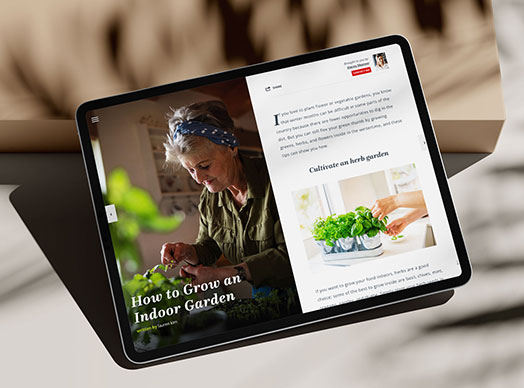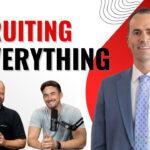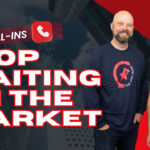Ep 108: David DeCelle – The Best Networking Strategies for Growing Your Client List
David DeCelle is an entrepreneur, financial expert, and founder of The Financial Advisors’ Alliance—a training, coaching, and consulting company created by advisors, for advisors.
Today on Stay Paid, David discusses how networking and building relationships has led him to a fulfilling and profitable career.
Key Points
- You can get appointments quicker by connecting with prospects on multiple social media platforms.
- Focus on helping other people, and profit will follow.
- Always say yes to a 15-minute meeting, because you never know what good might come of it.
Q: Introduce yourself to our audience.
I started as a financial advisor in 2011. I was with Northwestern Mutual for 7 years. During that time, I was focused on insurance and financial planning. I also ran our financial advisor internship program.
I was a 22-year-old who didn’t know what he was doing. The mission of the program was to identify future leaders for our company and make sure people were better off for having met us—in that order.
Early on, it was all about sales metrics to me. When I realized that this didn’t work, the mission got flipped, to where our primary goal was to make sure people were better off for having met us.
Once I realized I was working with someone who wouldn’t be with us in the long term, I’d still do whatever I could to help them get to where they needed to be.
In 2018, I started the Financial Advisors Alliance so that I could do the same thing but not be limited to working with only one firm.
Q: How did you get your first clients as a coach?
I made a very deliberate decision to shift from calling people to using social media to make connections. Starting at 4 or 5 in the morning, I would send out hundreds of LinkedIn connection requests to financial advisors. After they accepted, I would invite them to a Facebook group, where I would post something of value on a daily basis.
By doing this, I built up a lot of relationship capital. I’d connect easily on LinkedIn, and then I’d nurture them with my content. I’d use pictures, videos, and articles/blogs. This way, I appealed to people with different learning styles.
I’d also find people through Facebook and Instagram. This allowed me to become omnipresent. Being active on multiple platforms increases relevance and brings people to trust you that much faster. When people know, like, and trust you from afar, this gives you more opportunities to engage with them.
It also helps if you can connect people with what they need. For example, if they’re looking to buy a house, be able to connect them with a real estate agent.
Finally, you need to keep things relevant. It’s hard enough to get people’s attention once, and you don’t want to lose them once you do.
Q: What do you recommend in terms of personal development?
I’ve tried a number of things. I learned this from Andy Frisella’s The Power List. You have things that you do every day, and you don’t switch them up for a few weeks. You want to become 100 percent confident in those tasks.
I start my day with two things that make me feel good. It could be going to the gym, eating healthy, or listening to a podcast. Then there are things that move your business forward, such as a marketing campaign. The third is focused on the service of others, such as connecting two people or calling someone to see how they’re doing.
Our competence is higher when we’re part of a winning organization, so create your own winning environment. This creates momentum, which allows you to cultivate your own internal motivation.
Q: We hear top producers, coaches, and business owners say that relationships are the most important thing. What does this look like in practice?
I’ll give you two specific examples that are very detailed.
Here’s the first. In my third year as an advisor, there was this badass advisor who raised himself through the ranks and was working with super affluent people. Then, he had a kid he was going to work with who was, relatively speaking, lower income. On the surface, it wasn’t worth his time to service that person, so he gave this person to me.
This person was in real estate and was also a comedian. His name is Justin. I helped him with basic budgeting for no charge, then sold him a very basic insurance policy for a few hundred dollars. We became friends. In going to his shows, he introduced me to his friend Jess, who was a pharmacist. She worked with me, and then gave me 40 referrals, which allowed me to break into the pharmaceutical space. This became my niche for the rest of my career as an advisor.
Justin actually called me more recently, and he’s working full-time as a comedian now. I’m working with him on budgeting again for his new career path.
The thing with building relationships is that it starts with actually giving a crap about the person you’re sitting across from. My interaction with him took 35 minutes, and that 35 minutes changed the course of my career.
Making money is cool, but psychological income is what really fires me up. I work with real estate agents, loan officers, and now even a comedian. These people come to me primarily through my social circle. They become clients and friends. I’m part of the reason why these people are doing well, and that feels really good.
I’ll see people who are mutual connections, and I’ll ask them if it’s alright if I reach out to them. It’s so frustrating to me when I give a referral and never find out what happened. In terms of referrals, ask, tee it up, then follow up.
Another thing is that you need to go out of your way to give referrals, rather than waiting for someone to ask for them. When you see someone making moves, let them know you have someone you can connect them with.
The second story is that I went to an all-boys Catholic high school. I was friends with a guy named Pete. He is now a wholesaler at John Hancock. His target audience is financial advisors.
He organized a big event for financial advisors in Nebraska. I was the key note speaker. It was a great learning experience for me. I spent $2,500 to get there, and then I spent another $2,500 on a videographer. I thought it’d get me so many clients.
In the months after the conference, I didn’t really see any return on my investment. But then that changed.
At the conference, I met this guy Landon, who had just built this big beautiful house on a lake in Nebraska. He had capital to hire me but not enough bandwidth to spend the amount of time he’d need to spend with me. I eventually set it up so we could spend an hour together and share ideas, pro bono.
He told me I had to talk to this guy Dan, who had interviewed a bunch of consumers and advisors to learn why people give or don’t give referrals. He also bought an insurance brokerage company, and, within three years, quadrupled its revenue.
Since then:
- Dan has hired me to help him with his marketing efforts.
- We’re trying to work out a deal where I can fill out speaking engagements for him.
- I can now white-label Dan’s services and start my own insurance brokerage agency.
With every person you come across, you’re building equity in your network. Every person is a lottery ticket, and you’re never sure which one is going to pay off.
Q: How are you helping other people implement these ideas?
A lot of firms are very focused on metrics, and there’s no metric for “I had a really good conversation.”
Financial advisors need to speak to business owners, doctors, or dentists. It’s a good idea for advisors to have conversations and try to set appointments. If they don’t get business right now, they can still win them over with their content.
Q: Is this approach something that can be learned? How do you acquire the skills?
I’ve created thousands of videos. I trip over my words sometimes. But I’m the product of the things I’ve learned, and I share my knowledge.
I’ll tell people to check out my content, and then I’ll offer a free training call. But they’ll go and sign right up for the course instead.
I sometimes suffer from imposter syndrome. If you’re feeling like you have imposter syndrome, go out and help people for free. Win them over. It’ll build your confidence.
Q: What advice would you give to your younger self?
The first thing is to actually go out of your way to learn new stuff, both within and outside of your industry. If I read only financial advisor industry books, I’d be stuck in the 1980s. Learn what you can from other industries.
Always be open to having a 15-minute conversation, because you never know where those will go. If I’m too busy, I’ll take time early in the morning or late at night. That will go a long way, and 18 months from now, that will come back to help me.
Action Items:
- Figure out who in your sphere you can give referrals to, then give them those referrals.
Connect with David:















 Soundcloud
Soundcloud iHeart Radio
iHeart Radio Spotify
Spotify Spotify
Spotify


